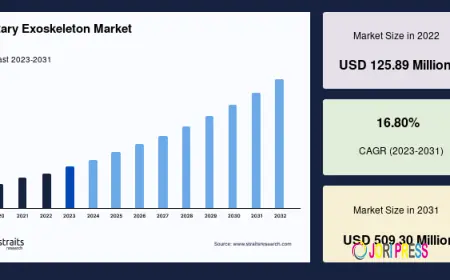Trade Policies Shaping the Healthcare Industry
When I think about healthcare, I realize it’s not just about doctors, hospitals, and medicine. The way countries interact through trade agreements and policies has a huge influence on how accessible and affordable healthcare products and services are. Medicines, medical devices, digital health technologies, and even wellness products are all shaped by international trade. These policies affect how quickly innovations reach patients, how supply chains are managed, and how fair pricing is ensured across different markets.

How Global Agreements Influence Access and Innovation
Understanding the Role of Trade in Healthcare
When I think about healthcare, I realize it’s not just about doctors, hospitals, and medicine. The way countries interact through trade agreements and policies has a huge influence on how accessible and affordable healthcare products and services are. Medicines, medical devices, digital health technologies, and even wellness products are all shaped by international trade. These policies affect how quickly innovations reach patients, how supply chains are managed, and how fair pricing is ensured across different markets.
For example, trade agreements between countries can lower tariffs on medical equipment, making it easier for hospitals to get advanced tools at lower costs. They can also improve access to lifesaving drugs by creating pathways for generic medicines to enter global markets. I’ve noticed that these policies directly impact everyday people, not just big corporations. Whether it’s a small clinic or a large urban hospital, trade frameworks shape how efficiently they can serve patients.
In the same way I look for availability in my personal choices—like searching for mr fog near me—healthcare providers also look for what’s accessible, affordable, and high-quality to support their patients. Trade agreements create that network of accessibility.
The Link Between Trade and Healthcare Innovation
Innovation in healthcare depends on research, funding, and technology. Trade policies often play a role in balancing intellectual property rights with the need for broad patient access. For example, policies that encourage fair patent protection allow companies to invest in research without losing the ability to recover costs. At the same time, global agreements that prioritize affordable care ensure that innovations do not stay limited to wealthy markets but are shared across borders.
Another important factor is digital health. Technologies such as telemedicine platforms, remote monitoring tools, and AI-powered diagnostics are spreading worldwide faster than ever because of supportive trade environments. These tools allow doctors to connect with patients in rural areas, improve treatment accuracy, and even reduce costs. Without open trade policies, the global flow of digital health technologies would be much slower.
I see this as a direct reflection of how new trends enter my own lifestyle. Just as new mr fogs bring variety and choice into the vaping space, trade frameworks bring new healthcare solutions to people who need them most. Innovation thrives when it’s supported by a system that encourages exchange and collaboration.
Benefits That Trade Policies Bring to Patients
The impact of healthcare-related trade agreements is felt at many levels, but the most important outcome is better patient care. Here are a few clear benefits I’ve noticed:
-
Lower Costs: Reducing tariffs on medical imports lowers the overall cost of care.
-
Faster Access to Medicine: Agreements that simplify approval processes allow patients to receive treatments sooner.
-
Improved Quality Standards: Shared regulations raise the quality and safety of medical products worldwide.
-
Expanded Choice: Trade enables a greater variety of medical tools, therapies, and technologies to reach hospitals and pharmacies.
-
Global Collaboration: International cooperation strengthens research, especially for global health issues like pandemics.
These benefits highlight why trade matters. It’s not just about economics—it’s about ensuring people everywhere have better health outcomes.
The Future of Healthcare Shaped by Trade
Looking ahead, I believe trade policies will continue to reshape the healthcare industry in meaningful ways. As more countries commit to strengthening supply chains, the chances of shortages will decrease. As digital health technologies evolve, supportive policies will ensure they reach patients globally. More importantly, collaboration between nations will keep pushing healthcare forward, creating opportunities for both patients and providers.
Key areas to watch include:
-
Pharmaceutical Trade: Expansion of generic and biosimilar drugs across borders.
-
Medical Device Distribution: Faster global delivery of advanced equipment.
-
Digital Health Access: Cross-border agreements to support telemedicine and remote care.
-
Research Cooperation: International partnerships for tackling global health challenges.
For me, what stands out is how these trends will make healthcare more connected and responsive. Patients won’t just benefit from local resources but from global knowledge and innovation. It’s similar to how I enjoy exploring different choices when I come across mr fog switch flavors—having variety and access makes the experience better. Trade does the same for healthcare, ensuring the best options are available to improve lives everywhere.
The healthcare industry is evolving, and trade policies are at the center of this transformation. With supportive agreements and global cooperation, the future looks promising for better access, innovation, and patient care across the world.
What's Your Reaction?
 Like
0
Like
0
 Dislike
0
Dislike
0
 Love
0
Love
0
 Funny
0
Funny
0
 Angry
0
Angry
0
 Sad
0
Sad
0
 Wow
0
Wow
0

















































